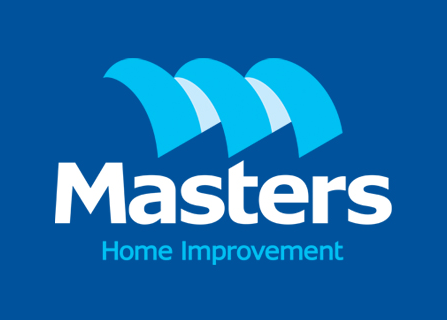
It could be the DIY masterstroke that finally provides some decent competition to home improvement powerhouse Bunnings and salvages the failed Masters chain to boot according to DGC Advisory. Source: news.com.au
But what is really galling for Masters’ embattled owner Woolworths, which is now struggling to sell off the multi-billion dollar failure, is that the answer was right under their noses to begin with.
Hardware consultant Geoff Dart of DGC Advisory, who is working on a plan to take over Woolies’ home improvement arm, said he can turn the operation around and start making money within a year.
“I would dump the new format Woolworths rolled out in Masters and re-lay the stores to develop a strong brand, differentiated by way of products and services that are all about value-adding,” Mr Dart told Fairfax Media.
Under Mr Dart’s plan, the Masters stores would be merged with Woolworths’ other DIY banner — Home Timber and Hardware.
Woolworths’ foray into hardware began in 2009 when Australia’s biggest supermarket chain bought Melbourne based retail wholesaler John Danks and Son for $88 million.
The company primarily supplied independent stores favoured by tradies, hundreds of which did business under the Danks’ owned banner of Home Timber & Hardware.
The aim was for Woolworths to learn the hardware ropes before opening its first Masters superstore in 2011.
While that plan backfired, with Masters sucking up cash like one of the car sponges sold in its superstores, Home Timber and Hardware added $21 million to Woolies’ 2015 bottom line.
Mr Dart’s strategy would see the Masters stores reformatted, a new product range introduced and, most importantly, the name above the door replaced by the rather more successful Home Timber and Hardware brand.
It’s an option that didn’t seem to occur to the chiefs at Woolworths.
Mr Dart said it’s the only way to ensure there will be a credible competitor to Wesfarmers’ owned Bunnings.
“This is a great opportunity but it will come down to whether people believe talk that there’s not room for a number two player in hardware or whether they dig deeply and see how it could work,” Mr Dart said.
It understood Mr Dart is sounding out potential investors including private equity firms. The fate of more than 7000 employees at Masters’ 63 stores across Victoria, New South Wales, Queensland, South Australia, Western Australia and the ACT hangs in the balance with the stores remaining open while Woolworths struggles to work out an exit plan.
Home Timber and Hardware can probably be sold as a going concern but Masters is more likely to be of interest for its stores than its brand.
The likes of Ikea, Costco and even Bunnings have been mooted as possible tenants of the former Masters’ stores.
National Retail Association chief executive Trevor Evans said in January that “big box” stores, like Masters, rarely came onto the market so could be snapped up.
“The closure of Masters is potentially a big opportunity for a lot of people, including domestic players and international companies who are watching Australia and might be considering opening their first store here.”
But before that happens Woolworths has to buy out the stake of 33% partner Lowes — and the US chain looks to be hanging out for a better deal than Woolies wants to offer.
Every week that ticks by without Lowes selling up is another week where the Masters stores continue to bleed money.
As of June 2015, Lowes and Woolworths had sunk around $3.1 billion in capital into the home improvement joint venture, known as Hydrox Holdings Pty Ltd. Of that, around $2.1 billion was contributed by Woolworths and $1 billion by Lowes.





